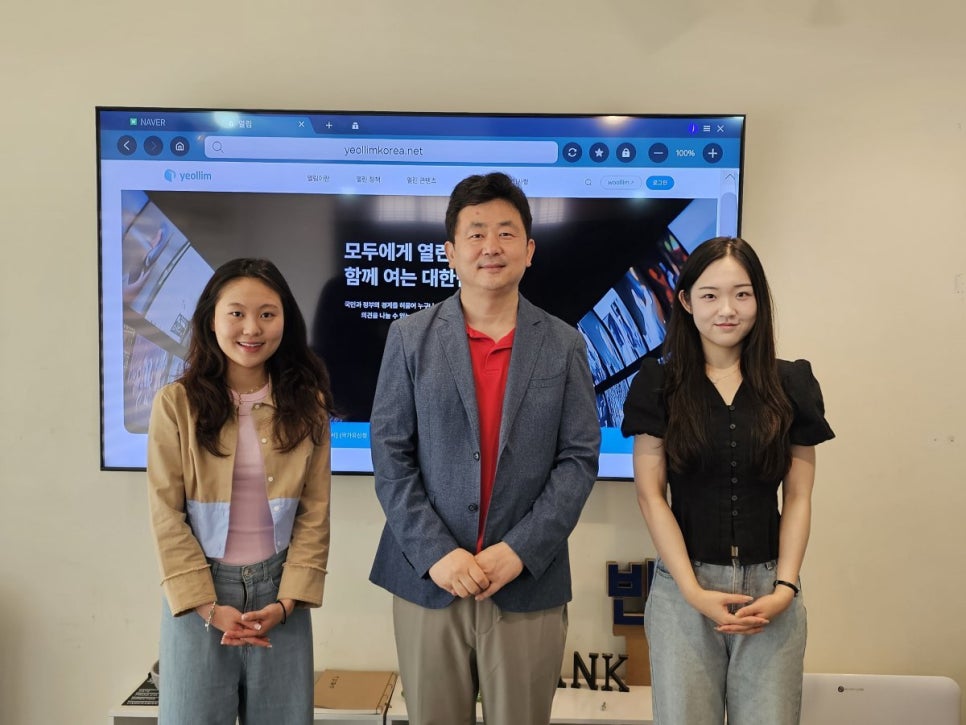
VANK has launched a campaign allowing overseas Koreans to evaluate official websites of 10 government ministries and affiliated agencies involved in diaspora affairs through its national policy evaluation platform, “Yeollim.” The project aims to position overseas Koreans not merely as beneficiaries of policies but as active “designers” contributing to a new model of global governance.
The official launch will take place from July 17 to 19, 2025, at the 43rd National Association of Korean Schools (NAKS) Academic Conference and Annual General Meeting in Dallas, Texas, USA. At the event, VANK will introduce “Yeollim” as a platform connecting the voices of overseas Koreans directly to the Korean government and roll out an interactive campaign enabling participants to evaluate government websites and propose improvements.
Currently, policies related to overseas Koreans are dispersed across more than 10 ministries, including the Ministry of Foreign Affairs, Ministry of Culture, Sports and Tourism, and Ministry of Education. While the Overseas Koreans Agency was established in 2023 to integrate these efforts, interactive communication that overseas Koreans can meaningfully experience remains limited.
Through this project, overseas Koreans will directly assess online content of relevant institutions and offer improvement suggestions. Evaluation targets include the Overseas Koreans Agency (OKA), KoreanNet, HansangNet, StudyKorean, the Overseas Koreans Cooperation Center, King Sejong Institute Foundation, Nuri King Sejong Institute, and the Overseas Koreans Education Portal, among other major education and promotion websites.
VANK defines overseas Koreans as co-designers of Korea’s diplomatic, cultural, and educational policies, as well as key partners in realizing Korea’s global vision. With 7.5 million overseas Koreans living in over 180 countries, they are crucial partners in shaping Korea’s future across political, economic, diplomatic, and cultural spheres, yet their voices are not yet sufficiently reflected in policy structures.
The role of overseas Koreans is becoming increasingly important in key national agendas, including Korean Peninsula unification, diplomatic strategy, and international cooperation. They serve as global ambassadors of Korea, helping to position the country as a hub of Asia, a gateway to Northeast Asia, and a nation that shares dreams and friendship with the world.
Just as the dedication of overseas Koreans in North America historically enabled the establishment of the Provisional Government of Korea in Shanghai and the country’s independence, VANK envisions that the active participation of overseas Koreans today can shape Korea’s future in the global era.
Initially, the project will focus on evaluating government websites, but it will expand to include assessments of promotional and educational materials aimed at overseas Koreans. By allowing participants to directly evaluate and provide recommendations, VANK expects more precise and practical policy design to emerge from this two-way governance structure, moving beyond the traditional one-sided government approach.
VANK plans to expand the “Yeollim Project” around key dates such as the 80th anniversary of Korea’s liberation on August 15 and Korean National Day on October 5. Long-term plans include cultivating “Global Hallyu Ambassadors” across overseas Korean communities, developing tailored educational content reflecting local Korean identities, launching campaigns linked to “Korean Month” in October, and strengthening governance through a communication platform connecting VANK, overseas Koreans, and government agencies.
Park Ki-tae, head of VANK, stated, “Just as China’s overseas Chinese networks and Israel’s Jewish communities have built strong global networks to advance their countries and preserve their identities, we must recognize the 7.5 million overseas Koreans as global partners in shaping Korea’s future. Although extensive Korean networks already exist worldwide, the structures connecting them to Korean government policies have been lacking. This project is the first step in creating that connection.”
He added, “The realities experienced by overseas Koreans and their policy proposals must be meaningfully reflected in the Korean government. While we once passively followed an international order led by Western powers, now we can leverage our global diaspora to design a new international order. This will be a crucial turning point for Korea’s strategic future.”
VANK researcher Kwon So-young said, “VANK has served as a policy bridge connecting the Korean public and government through the policy proposal platform ‘Ullim’ and the evaluation platform ‘Yeollim.’ Now, we are expanding this reach to the 7.5 million overseas Koreans, actively involving them as participants in policy design.”
VANK researcher Koo Seung-hyun added, “Just as overseas Koreans left a significant mark on history by supporting Korea’s independence movement 100 years ago, we hope 21st-century overseas Koreans will unite to make Korea the most influential nation on the global stage. VANK will continue to contribute to that effort.”
Meanwhile, VANK will participate in the 43rd NAKS Academic Conference and Annual General Meeting to explore the future of Korean schools. Head Park Ki-tae, along with researchers Kwon So-young and Koo Seung-hyun, will conduct lectures guiding Korean school teachers to effectively serve as “Ambassadors of Korea” amid the Hallyu wave.
Additionally, VANK will present the “VANK Ambassador Award” at the 7th NAKS “Rightly Knowing Korea Journalist Corps” scholarship ceremony, and on July 18, 2025, the opening day of the academic conference, VANK plans to sign a new memorandum of understanding (MOU) with NAKS.